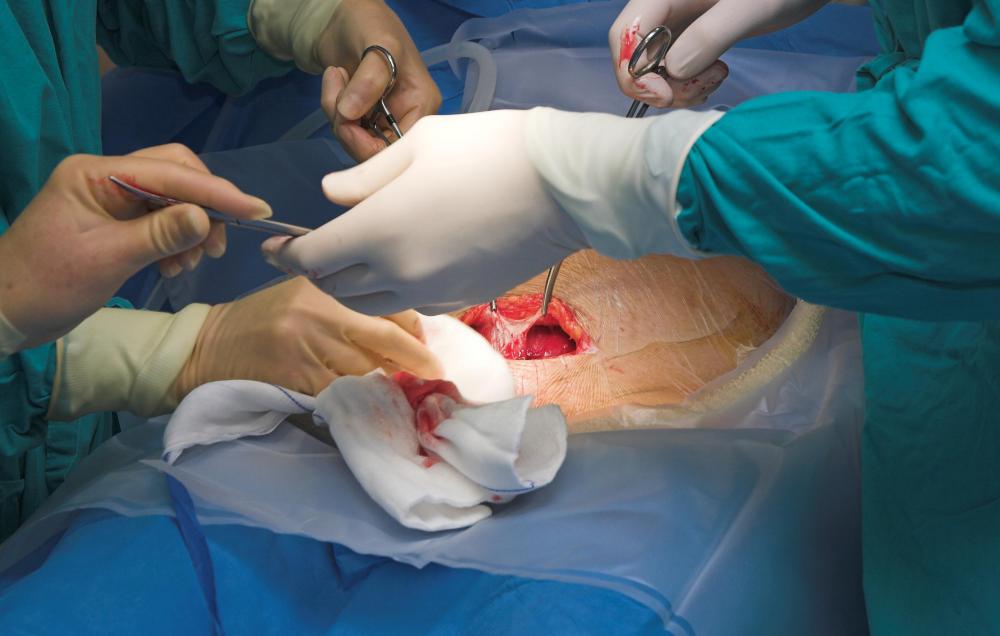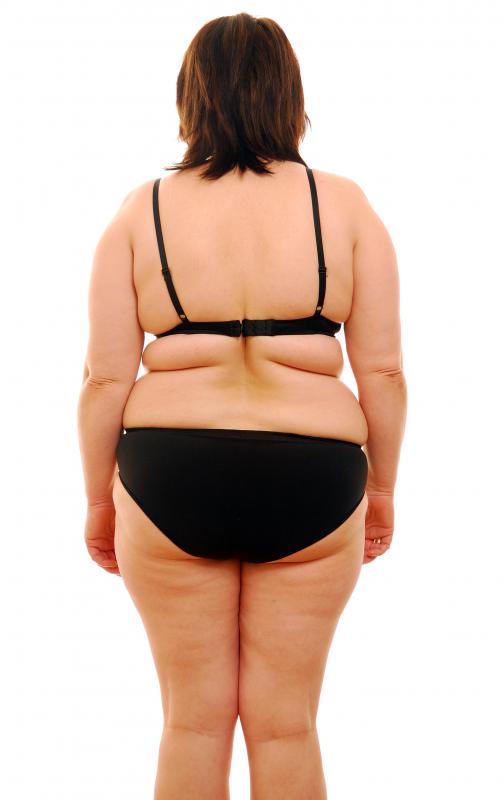At WiseGEEK, we're committed to delivering accurate, trustworthy information. Our expert-authored content is rigorously fact-checked and sourced from credible authorities. Discover how we uphold the highest standards in providing you with reliable knowledge.
What is Macrosomia?
Macrosomia is a medical condition that results in the body being abnormally large. This condition is generally noted in babies whose birth weight exceeds a certain amount. It is believed that macrosomia is often the result of a diabetic mother. Other factors that may cause the condition include obesity of the mother, overdue delivery dates, and previous overweight births. Women of African descent and Hispanic women are typically regarded as most likely to give birth to macrosomic babies.
Medical professionals do not have a complete understanding of macrosomia. Some women who display no apparent risk factors give birth to macrosomic babies. On the contrary, many women with characteristics that may suggest the likelihood of macrosomia actually give birth to babies with normal weights. Women with recognized cases of diabetes are generally encouraged to manage their blood sugar. Other than this, there aren't methods to prevent macrosomia.

Giving birth to a macrosomic baby can cause a woman to bleed excessively and may cause damage to her tailbone. Macrosomia also increases a woman’s chance of needing to have a Cesarean section. It is difficult for doctors to accurately determine a baby’s weight during the pregnancy, even when ultrasounds are done.
A doctor may suggest the Cesarean based on a guess that the baby is oversized. The size of the head and shoulders may make it difficult for a woman to proceed with natural delivery. In some cases when a baby is too large, one of his shoulders may get lodged behind the mother’s pubic bone. This is called shoulder dystocia and it can be fatal for the baby.

Although doctors tend to suggest Cesareans when there are suspicions of macrosomia, it is not always necessary. Some evidence shows that many women can safely proceed with vaginal labor. Doctors may also suggest inducing labor when they believe this condition is present.
Induced labor is usually only potentially beneficial if the mother is diabetic. The reason is because it can eliminate the need for a Cesarean by causing the mother to go into labor before the baby grows too big. This method may be used if the mother wants to deliver naturally. There are risks, however, that the induction may fail.

Giving birth to a macrosomic baby can sometimes result in negative health effects for the child. In addition to shoulder injuries, a baby may experience damage to the facial nerves or brachial plexus injuries. The brachial plexis is a series of nerves that connect from the spine to the shoulders, arms, and hands. In many cases, however, macrosomic babies do not sustain any long-term or permanent damage.
AS FEATURED ON:
AS FEATURED ON:

















Discuss this Article
Post your comments